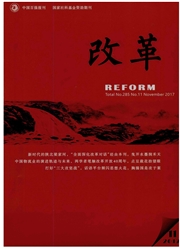

 中文摘要:
中文摘要:
从提高文化认同感、降低贸易成本、共享信息三个维度,剖析孔子学院这种文化交流形式对区域贸易合作的影响机理,进而基于1992~2013年“一带一路”沿线64国对华贸易数据,检验孔子学院在中国与沿线国家区域贸易合作中所起的作用。研究发现,孔子学院的建设显著地推动了中国与“一带一路”区域的贸易增长;相较出口贸易,孔子学院更能推动“一带一路”沿线对华进口贸易的增长;相较“一路”沿线,孔子学院更能促进“一带”国家对华贸易的增长;此结论在多种稳健性检验下依然成立。在“一带一路”进入实质性建设的新阶段,中国应更加注重在政策设计上发挥诸如孔子学院等文化交流因素反哺经济的作用。
 英文摘要:
英文摘要:
This paper analyzes the impact mechanism of Confucius Institute's cultural exchange form on regional trade cooperation from three dimensions: improving cultural identity, reducing trade costs and sharing information. We examine the effect of the Confucius Institute in regional trade cooperation of China and the countries along the line. Overall, We find that Confucius Institute has significantly promoted the trade growth of China and the countries along "One Belt and One Road". Compared to export trade, Confucius Institute is more able to promote the growth of "One Belt and One Road" national imports from China. Compared to the countries in "The Road", Confucius Institute can promote the trade growth of China and the countries in "The belt". This empirical conclusion is still set up under various robustness tests. This study shows that Chinese government should pay more attention to the economic effect of cultural factors such as the Confucius Institute in policy design.
 同期刊论文项目
同期刊论文项目
 同项目期刊论文
同项目期刊论文
 期刊信息
期刊信息
